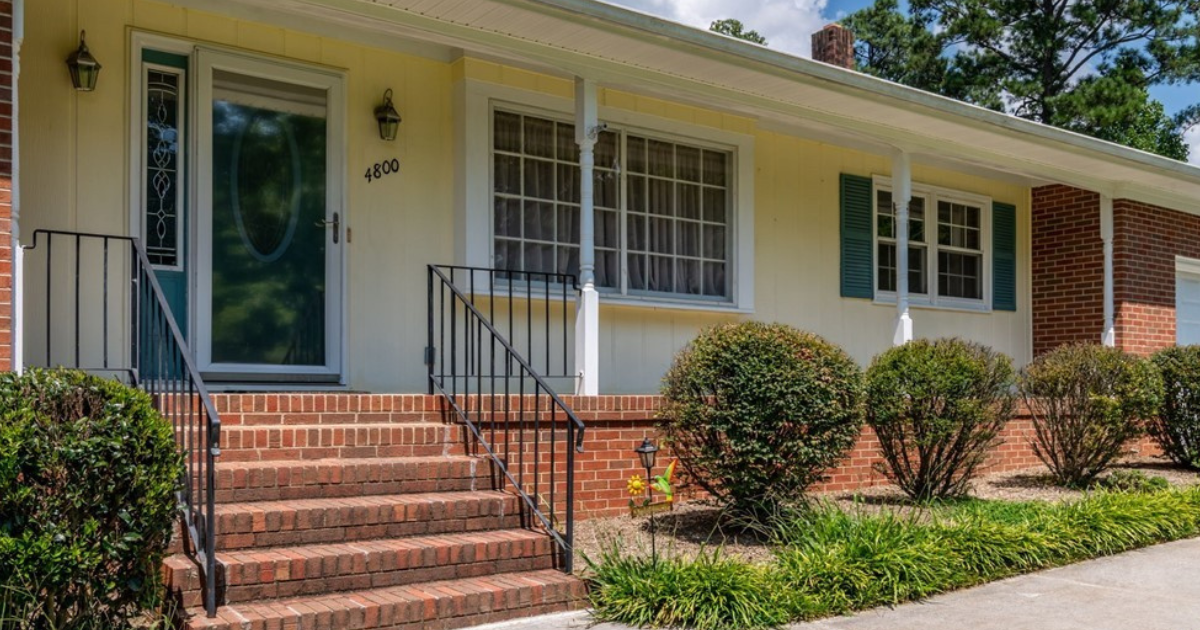When homeowners think about accessing the equity they've built in their homes, a cash-out refinance is often one of the first options that comes to mind. It’s a powerful financial tool that can unlock your home’s value for things like renovations, debt consolidation, or big life expenses. But how does it actually work? And when is it the right move?
Let’s break it down.
What Is a Cash-Out Refinance?
A cash-out refinance is a type of mortgage refinance that allows you to take out a new, larger loan to replace your existing mortgage—and pocket the difference in cash.
Instead of refinancing just to get a lower interest rate or change your loan term (like a typical rate-and-term refinance), a cash-out refinance increases your loan amount based on how much equity you've built in your home.
For example:
If you owe $200,000 on your home and it's currently worth $400,000, you have $200,000 in equity. With a cash-out refinance, you might refinance into a $300,000 loan—paying off the existing $200,000 mortgage and walking away with $100,000 (minus any applicable closing costs… unless, of course, you go with CapCenter, where you pay zero closing costs).
How Does It Work?
The cash-out refinance process is similar to a standard mortgage:
- Apply and qualify – Lenders review your credit, income, and home equity.
- Appraisal – A new appraisal determines your home’s current market value.
- Loan approval – Based on underwriting guidelines and equity limits, the lender offers you a new loan.
- Closing – Your original mortgage is paid off, and the remaining funds (your cash out) are disbursed to you.
The key component is your loan-to-value ratio (LTV). Most lenders will allow you to borrow up to 80% of your home’s appraised value. That means if your home is worth $400,000, the most you could typically borrow is $320,000—assuming you qualify.
CapCenter clients can quickly estimate their home’s value using our free home value estimator, helping you understand how much equity you might be able to tap.
What Can You Use a Cash-Out Refinance For?
One of the biggest advantages of a cash-out refinance is flexibility. The funds are yours to use however you choose. That said, some uses are more strategic than others:
- Home improvements: Renovations or upgrades may increase your home’s value and potentially pay for themselves over time.
- Debt consolidation: Using equity to pay off high-interest credit cards or personal loans can simplify payments and reduce interest.
- College tuition: Some parents use equity to help fund a child’s education.
- Emergency reserves: Accessing cash to create or bolster an emergency fund may provide peace of mind.
- Investments: Though riskier, some homeowners use funds to invest in businesses, real estate, or the stock market.
No matter your plans, it’s important to weigh the cost of borrowing against the potential benefit—and to work with a trusted advisor who understands your goals.
Cash-Out Refinance vs. Other Equity Options
A cash-out refinance isn’t the only way to turn your equity into cash. Here’s how it compares to a few other common strategies:
Cash-Out Refinance vs. HELOC (Home Equity Line of Credit)
A HELOC is a revolving line of credit secured by your home. You only borrow what you need, when you need it—but rates are usually variable. A cash-out refinance, on the other hand, gives you a lump sum with a fixed rate.
Cash-Out Refinance vs. Home Equity Loan
A home equity loan is a second mortgage, separate from your original loan. It usually comes with a fixed rate and monthly payments. A cash-out refinance replaces your original mortgage and typically offers lower rates than a standalone second loan.
CapCenter now offers both cash-out refinances and home equity loans, giving you more ways to access your equity depending on your needs. If keeping your current low-rate mortgage intact is important, a home equity loan might be the better fit. If you’re ready to refinance anyway, cash-out might be the way to go.
Pros of a Cash-Out Refinance
- Access to large sums of money: Ideal for big-ticket expenses.
- Lower interest than credit cards or personal loans: Because it’s secured by your home.
- Potential tax benefits: If the funds are used for home improvements, interest may be tax-deductible (consult your tax advisor).
- Simplifies your finances: You’re consolidating into a single loan with one monthly payment.
Cons to Consider
- You’re replacing your current mortgage: If your existing rate is lower, refinancing could increase your total interest paid.
- Extends repayment timeline: You may restart a 30-year term unless you choose a shorter one.
- Risk of foreclosure: Borrowing against your home carries real consequences if you can’t repay.
- Closing costs: Cash-out refinances typically come with higher closing costs... unless you choose CapCenter, where zero closing costs means more money stays in your pocket.
When Does a Cash-Out Refinance Make Sense?
A cash-out refinance may be a smart move if:
- Your home has significantly appreciated since you bought it, and you have substantial equity.
- You have high-interest debt you want to consolidate under a lower rate.
- You need cash for a meaningful purpose like renovations that can boost your property value.
- You plan to stay in your home long enough to realize the financial benefits.
But it may not be ideal if you’ve recently locked in a low mortgage rate and don’t want to give it up—especially if your need for cash is short-term or relatively small. In that case, a home equity loan might be more cost-effective.
Why Work With CapCenter?
At CapCenter, we’ve built our reputation on helping homeowners save—without compromising on service. Our Zero Closing Cost Cash-Out Refinance offers major advantages over the traditional lender model:
- No hidden fees. You’ll never pay lender fees, application fees, or origination charges.
- Expert team. Our experienced mortgage advisors walk you through every step.
- Streamlined process. From online application to closing, our in-house team keeps things moving.
- Equity insights. Use our free home value tool to check your estimated equity in minutes.
We’re not just a lender—we’re your partner. Whether you’re exploring cash-out refinancing, buying a new home, or investing in your future, CapCenter is here to help you make informed, confident decisions.
Final Thoughts
A cash-out refinance can be a powerful way to leverage the equity you’ve earned. Whether it’s funding renovations, consolidating debt, or building your financial cushion, it offers flexibility and access to capital—potentially at a lower interest rate than other loan types.
But it’s not the right choice for everyone. The key is understanding how it affects your long-term financial picture and exploring all your options.
Want to know how much you could get from your equity? Start with CapCenter’s home value estimator and see if a cash-out refinance—or a home equity loan—makes sense for you.
FAQs
How much can I borrow with a cash-out refinance?
Most lenders allow you to borrow up to 80% of your home’s appraised value. For example, if your home is worth $400,000, the maximum loan amount might be $320,000 (subject to credit and income qualifications).
Is a cash-out refinance taxable?
No, the funds you receive from a cash-out refinance are not considered income, so they are not taxed. However, always consult a tax professional for your unique situation.
Does a cash-out refinance hurt my credit score?
It may cause a temporary dip in your credit due to a hard inquiry and changes in your credit mix. However, consolidating debt with a cash-out refinance could improve your score over time if managed responsibly.
How long does the process take?
Typically 30 to 45 days from application to funding. CapCenter’s streamlined in-house process helps reduce delays and simplify each step.
What credit score do I need for a cash-out refinance?
Generally, you’ll need a score of 620 or higher, though better rates and terms are often available for those with 700+ credit scores.




